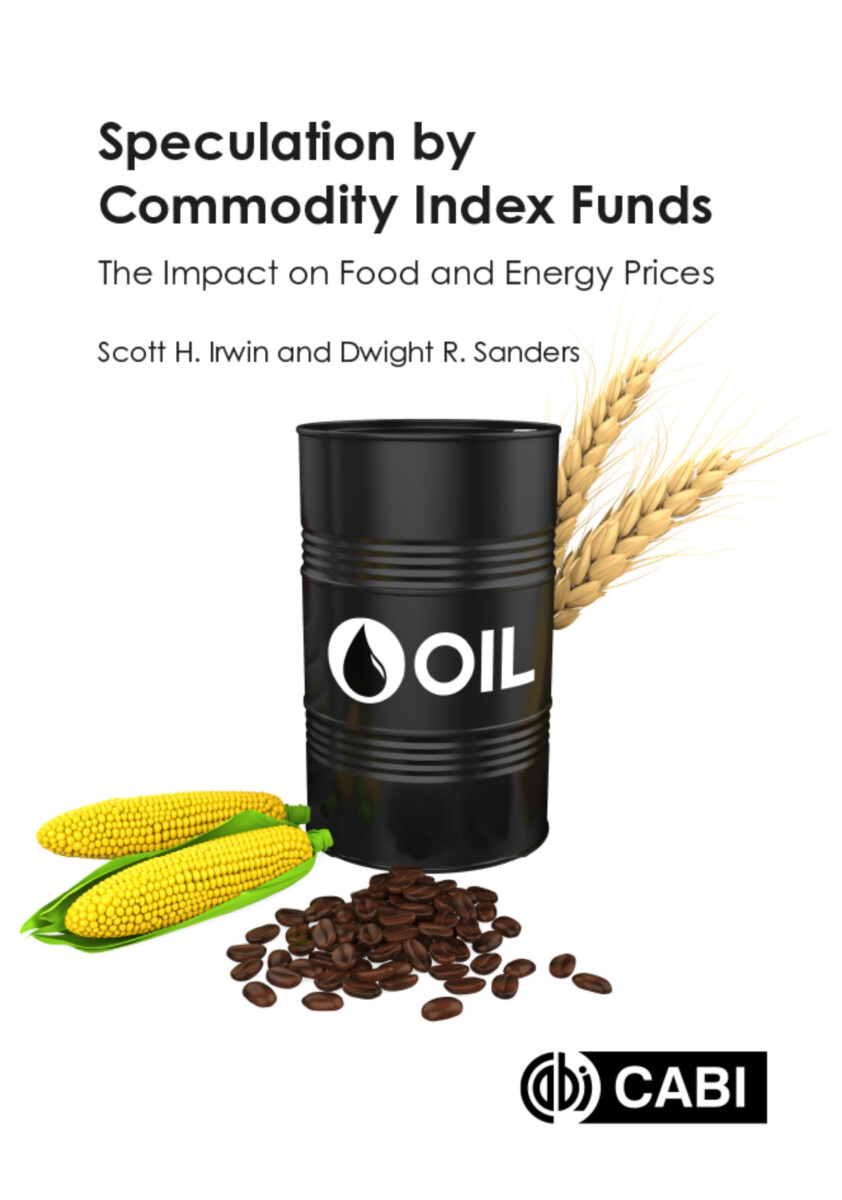Speculation By Commodity Index Funds
The Impact on Food and Energy Prices
- Publisher
CABI - Published
2nd August 2023 - ISBN 9781800622081
- Language English
- Pages 288 pp.
- Size 6" x 9"
Commodity futures prices exploded in 2007-08 and concerns about a new type of participant in commodity futures markets began to emerge. Market participants, regulators, and civic organizations began raising concerns that inflows from new "commodity index" investments were driving the increases in commodity prices instead of economic fundamentals. The main argument was that unprecedented buying pressure from these speculative long-only futures traders created massive bubbles that resulted in prices substantially exceeding fundamental value.
At the time, it was not uncommon to link concerns about speculation and high prices to world hunger, food crises, and civil unrest. Naturally, this outcry resulted in numerous regulatory proposals to restrict speculation in commodity futures markets through transaction taxes, speculative position limits, and even the bizarre idea of a "virtual reserve" whereby a public agency would take futures positions opposite speculators.
At the core, these assertions raised major economic questions about the efficiency of price discovery in commodity futures markets. Moreover, these so-called remedies did not come without a potential cost. Burdensome regulations would increase compliance and risk sharing costs across the global food system -- lowering prices for producers and increasing costs to consumers.
To guide this debate, a rigorous approach was needed to understand the dynamics between prices and commodity index activity. This book documents a curated selection of papers on the impact of index investment on commodity futures prices. The chronology of the papers roughly follows the timeline of our involvement in the world-wide debate about commodity speculation as it evolved after 2007. The 10 papers follow the evolving speculation debate with new author forwards highlighting the contribution and impact. Policy-makers, researchers, and market participants will find this not only as useful documentation of the debate; but, also a natural starting point when high commodity prices inevitably create the next speculation backlash.
Scott H. Irwin
Scott H. Irwin holds the Laurence J. Norton Chair of Agricultural Marketing in the Department of Agricultural and Consumer Economics at the University of Illinois at Urbana-Champaign. He is a national and international leader in the field of agricultural economics. His research on commodity markets is widely cited by other academic researchers and is in high demand among market participants, policymakers, and the media.
Dwight R. Sanders
Dwight R. Sanders is a professor in Agribusiness Economics at Southern Illinois University Carbondale (SIUC). He received his Ph.D. in Agricultural Economics and M.S. in Finance from University of Illinois in 1995. After positions with The Pillsbury Company and Darden Resaurants, he joined the faculty at SIUC where his research interests are in futures markets, forecasting, and risk management.


